Specialized Amira SL4 Comp women's road bike review
The Amira may have been replaced by the Women's Tarmac as the ultimate race bike for female riders but it's still got a lot to give
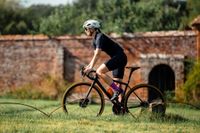
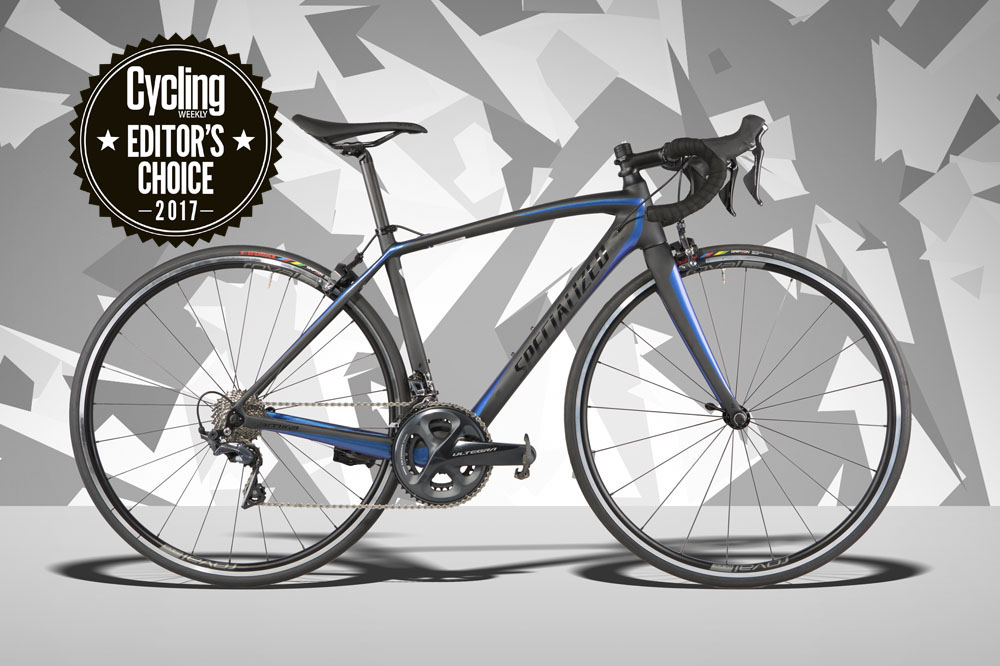
The latest race content, interviews, features, reviews and expert buying guides, direct to your inbox!
You are now subscribed
Your newsletter sign-up was successful
The Specialized Amira arrived in the UK in 2011; at the time one of few race orientated female specific bikes. Ridden by the brand's sponsored pro teams, including Boels Dolmans, the Amira has been a bike renowned for its excellent ride quality ever since its inception.
The Amira offers a punchy ride within a frame that's still light enough for days in the mountains. This is a GC contender of a bike, ticking off a number of boxes without making sacrifices, which is why the Amira features in our Editor's Choice 2017 collection.
Having made its UK debut in 2011, the Amira was slightly scaled back for 2017 - with just two models on offer, one with Shimano 105 and another Ultegra.
Specialized said that data from its Body Geometry bike fits (powered by Retül) showed that women racing bikes wanted much the same geo and layup as men racing bikes - so it brought out a men's and women's Tarmac for 2017.
The Women's Tarmac model is specced with narrower handlebars, shorter cranks and a women's saddle - and is an excellent choice when it comes to a women's road bike. Released this year, it features dropped seatstays for greater compliance, plus next generation tubing that is lighter and stiffer.
The Women's Tarmac geometry isn't worlds apart from the Amira - but for those seeking a race bike which is just a tiny bit taller in the stack (4mm on a size 54) and shorter in reach (6mm) then the Amira still has a lot to give.
Like a classics album of women's cycling
The latest race content, interviews, features, reviews and expert buying guides, direct to your inbox!
Despite the arrival of the Women's Tarmac, the Amira is still a longstanding example of a pedigree race bike created around geometry tailored for women. It's like a classics album of women's cycling - music has moved on a little bit now but we wouldn't swap it out of our collection.
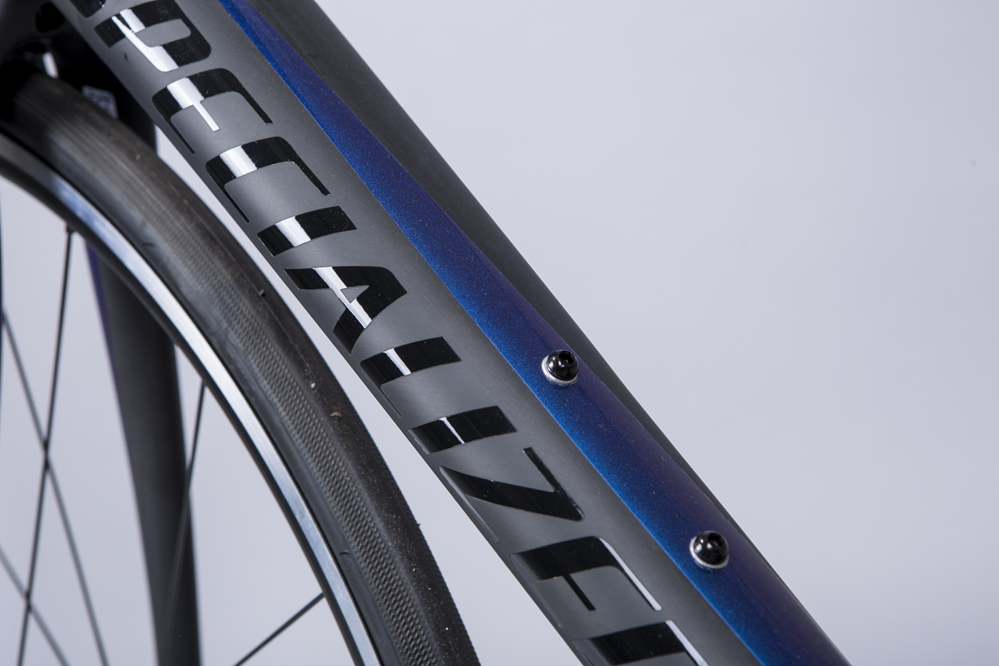
During its time being the very best that the big red S had to offer women, the Amira won two gold medals at the World Championships. One on a flat course in Qatar (Amalie Dideriksen) and one on a course featuring steep ramps (Richmond, Lizzie Deignan, then Armitstead). Those two results almost exemplify everything the Amira is: it's a bike which can power up climbs just as well as it can power to sprint finishes.
The Amira boasts the use of the brand's own FACT 9r carbon fibre. This has since been superseded as 'the best' by the 10r found on the Tarmac. However - it's still exceptionally stiff and responsive - and balanced across the sizes from 44 to 56 to ensure that every rider receives the same perfect blend of power transfer meets compliance and low weight.
The geometry in question is described as 'Women's Competitive' - the midway size, a 51 - carries a reach of 378 and stack of 529. The wheelbase is short, creating a nimble ride and up front is a full-monocoque FACT carbon fibre fork.
Clear appetite for speed
Hopping aboard the Amira the handling is unmistakable to any long term admirer - there's a clear appetite for speed and it's a bike that nails the immediacy required on a tight knit crit circuit whilst still offering the lengthly turning circle you want to find on the sweeping bends of a road race.
Both references above live in racing environments - and it's here where the Amira is most comfortable. Though it'll happily carry a passenger over day-long ride outs, there's not a huge amount of flex in the frame.
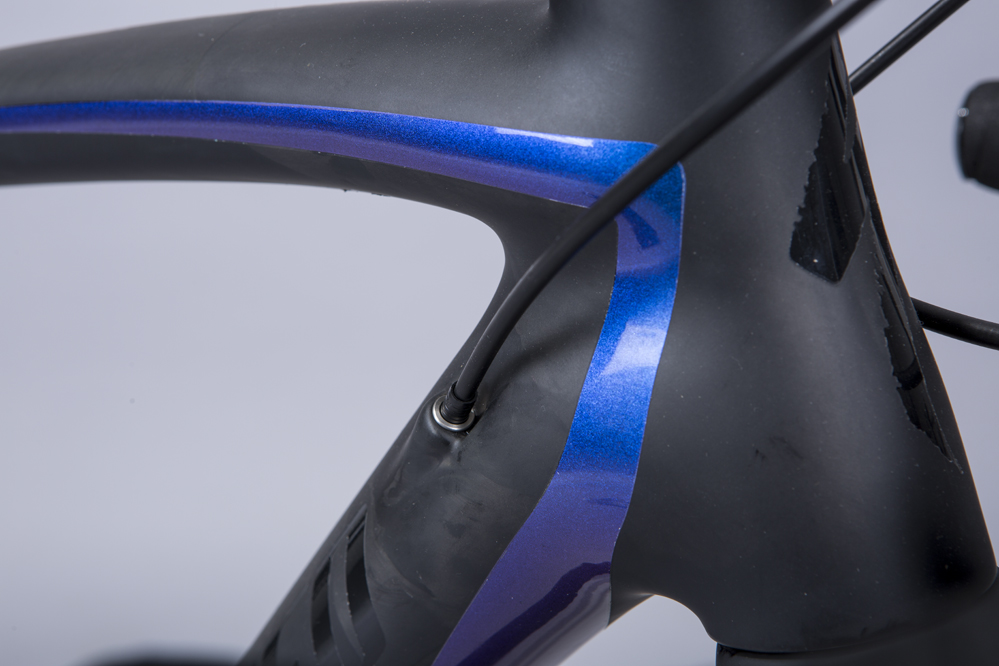
Where the new Women's Tarmac has been adjusted to offer an extra slice of comfort, the Amira jumps and skits over bumps in the road. However, whilst there's little spongey dampening on offer, that's what makes this such a solid road machine. This is a chassis that offers a connection with the ground below that far nullifies any irritation that could be presented by road buzz - provided you're the sort of rider who places a need for speed above comfort in the pecking order.
At this price point - £2500 - the Amira comes equipped with Shimano Ultega 8000 shifting. The gearing is very climb friendly, with a 50/34 chainset and 11-28 cassette.
Specialized has specced Roval SLX 24 Rims, with DT Swiss 350 hubs and S-Works Turbo tyres, in 24mm - arguable narrower than current fashions state but happily sitting between the 23mm and 25mm widths. The saddle is the brand's own race designed Oura Comp, paired with shallow drop handlebars.
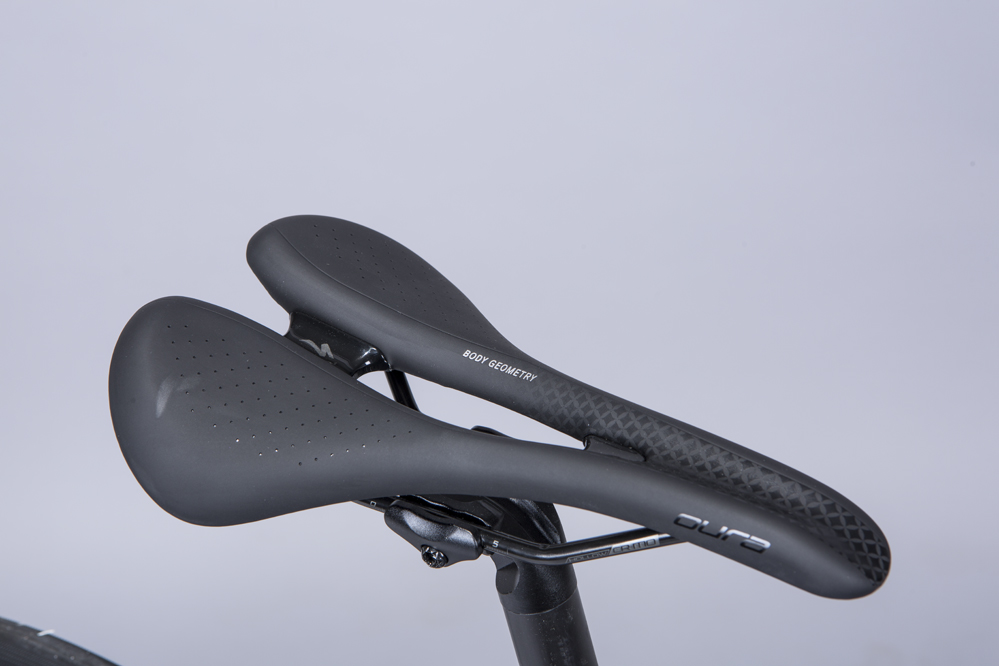
If it feels like a step too far into the bank balance, then the Shimano 105 version comes in at £1750.
The Amira, once a pioneering race model which broke through all the moulds and expectations laid out by a women's road bike, is no longer the new kid on the block. But it's a reliable favourite which has been loved by a generation of female cyclists - and the 2018 model proves it's got a lot of life in it yet.
Michelle Arthurs-Brennan the Editor of Cycling Weekly website. An NCTJ qualified traditional journalist by trade, Michelle began her career working for local newspapers. She's worked within the cycling industry since 2012, and joined the Cycling Weekly team in 2017, having previously been Editor at Total Women's Cycling. Prior to welcoming her first daughter in 2022, Michelle raced on the road, track, and in time trials, and still rides as much as she can - albeit a fair proportion indoors, for now.
Michelle is on maternity leave from April 2025 until spring 2026.
